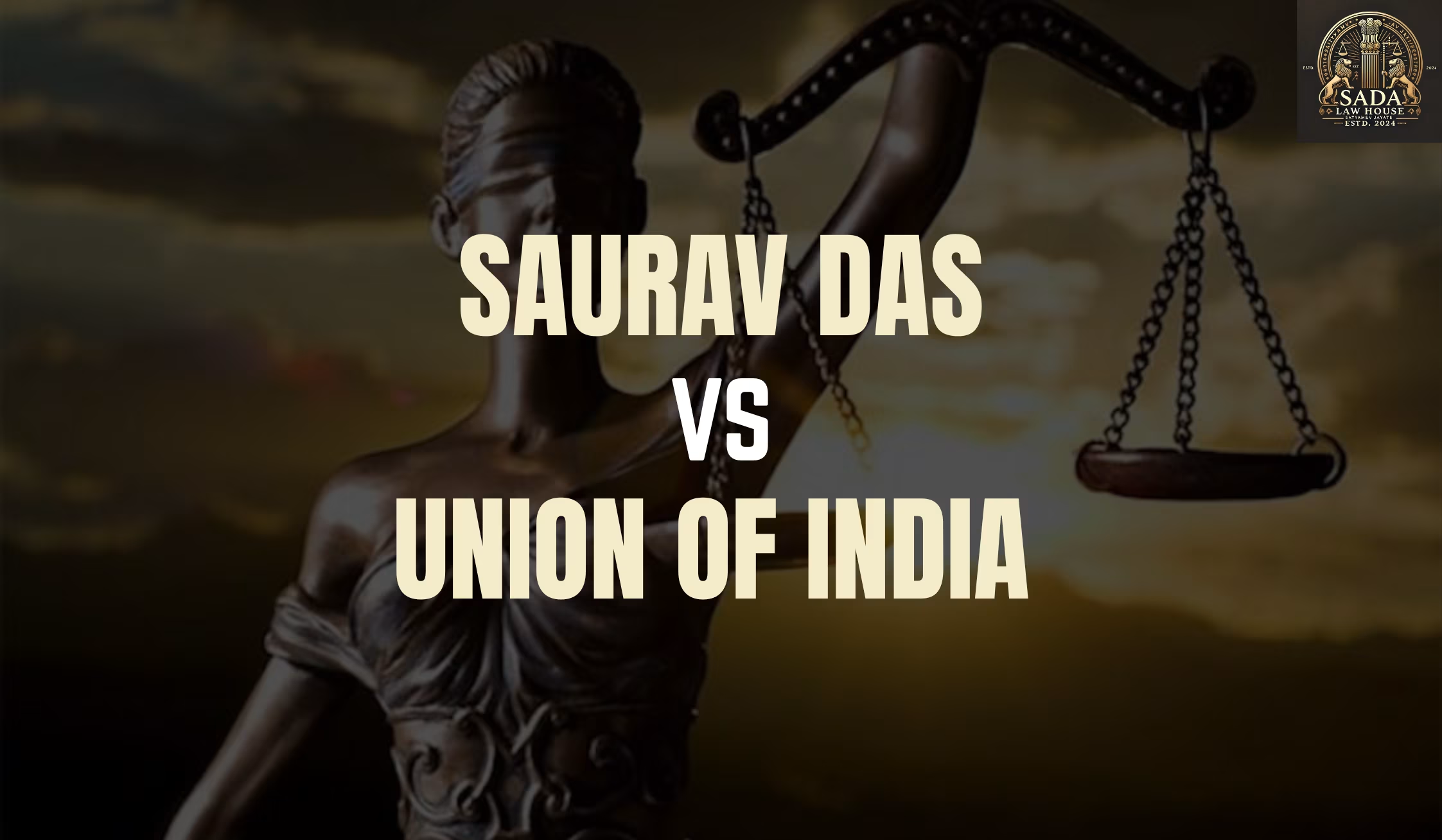Supreme Court Judgment on Chargesheets: Not Public Documents, No Mandatory Online Upload by Investigating Agencies | Saurav Das v. Union of India (2023)
- REHA BHARGAV
- 13 June 2025

In the landmark 2023 judgment of Saurav Das v. Union of India, the Supreme Court of India clarified that chargesheets are not public documents and dismissed the plea to mandate their online publication. This ruling balances criminal justice transparency with privacy and fair trial rights.
Introduction
On January 20, 2023, the Supreme Court of India delivered a significant judgment in the case of Saurav Das v. Union of India. The case centered around whether investigating agencies should be required to upload chargesheets on their official websites to promote transparency. This ruling highlights the critical balance between public access to information and the protection of individual rights such as privacy and fair trial.
Background of the Case
Who is Saurav Das?
Saurav Das (Note: if no Wikipedia page exists for Saurav Das, this link can be omitted or replaced with a relevant RTI or journalist page), a journalist and Right to Information Act, 2005 (RTI) activist, filed a Public Interest Litigation (PIL) seeking directions for police departments and investigating agencies to make chargesheets publicly accessible online, similar to First Information Reports (FIRs).
The Petitioner’s Argument
Das argued that chargesheets, once filed in court, become public documents under Section 74 of the Indian Evidence Act, 1872, and therefore, should be uploaded on official websites. He emphasized this would enhance transparency, accountability, and help journalists, researchers, and victims better understand criminal proceedings.
Respondents’ Counterarguments
The Union of India and several state governments opposed this plea, stressing the right to privacy, presumption of innocence, and the risk of prejudicing fair trials. They noted that chargesheets contain sensitive evidence and accused individuals’ details, unlike FIRs, and unrestricted online access could lead to media trials and damage reputations unfairly.
Key Issues in the Case
Should chargesheets be mandatorily uploaded online by investigating agencies?
Does online publication of chargesheets violate accused persons’ rights to privacy and a fair trial?
How to balance transparency in the criminal justice system with constitutional protections under Article 21?
Supreme Court Judgment Summary
Chargesheets Are Not Public Documents
The Supreme Court held that chargesheets differ fundamentally from FIRs. While FIRs initiate investigations and are basic public records, chargesheets contain detailed evidence, witness statements, and identities of the accused, warranting judicial protection.
No Directive for Online Upload
The Court dismissed the petition, ruling there is no constitutional or legal requirement for investigating agencies to upload chargesheets online. Access to chargesheets remains under judicial discretion, ensuring the accused’s rights are safeguarded.
Balancing Transparency and Privacy
The judgment emphasized the need to balance transparency with individual rights. Public access to chargesheets should be granted only through appropriate judicial processes to prevent prejudicial publicity and media trials.
Conclusion: What This Means for Transparency and Privacy
The Supreme Court’s decision in Saurav Das v. Union of India reinforces that chargesheets are sensitive legal documents protected by privacy and fair trial considerations. While transparency in criminal justice is vital, it must not come at the expense of constitutional rights. This judgment sets a precedent that access to chargesheets should be regulated by courts on a case-by-case basis, not by blanket online publication mandates.
Case Laws






